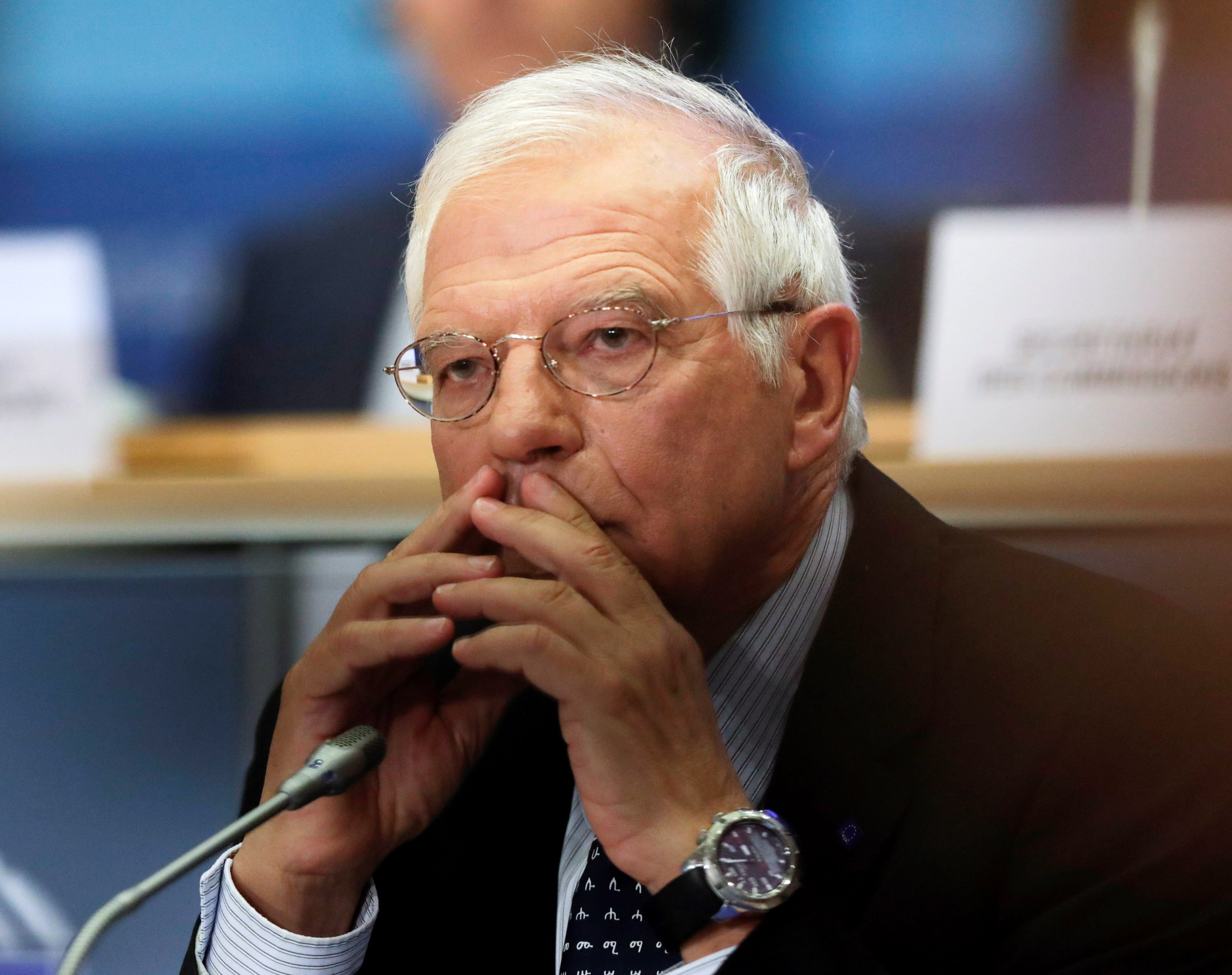Spain's acting foreign minister Josep Borrell this Monday faced the European Parliament for a hearing as part of his candidacy to become High Representative of the Union for Foreign Affairs and Security Policy. As if it were a story by Dickens, the minister saw a series of ghosts from his past and present paraded by the Committee on Foreign Affairs: Catalonia, the fine he was given for the sale of Abengoa shares, his comment that in the USA "the only thing they did was kill a couple of Indians", Spain's selling of weapons to Saudi Arabia, among others.
The minister knew the questions in advance and had his answers ready, although that didn't avoid him appearing uncomfortable at certain questions, especially those relating to the accusations behind the fine that he made inappropriate use of insider information. Nonetheless, he passed the three-hour-long examination, complete with congratulations at the end from the Committee's president.
The very first question came from Spanish MEP Antonio López-Istúriz (PP, EPP), who asked about Venezuela, Cuba and Nicaragua, as well as what he described as a "nationalist populism in Europe, in Spain and, specifically, in Catalonia": "What will be your position as high representative?"
Borrell tried to avoid specifics, limiting himself to guaranteeing the MEP that he shares "all his concern" over the matter. López-Istúriz wasn't satisfied with that, pushing again. Borrell insisted that he has already take a firm stance on the matter and that, as high representative, his job wouldn't be to comment on internal problems of different countries, not even his own.
The question of Catalonia, where Borrell is from, wouldn't appear again, but the minister made an oblique reference to the issue answering a question on Brexit: "I don't like borders. They're scars left by wars." He argued that people are enriched by plural identities, and that when he became president of the Parliament (2004-2007), he declared himself to be Catalan, Spanish and European.
Also quick to be raised was the question of the Abengoa issue by Latvian MEP Sandra Kalniete (EPP). The minister, visibly annoyed at having to discuss the matter, said he has always denied using insider information improperly. Markéta Gregorova (Greens/EFA) later pushed further on the matter, specifically mentioning his current portfolio, to which he replied: "If you're so bothered [about 12,000€ in stocks], tomorrow I'll give orders to sell them".
Other thorny issues
Kalniete also criticised Borrell for the Spanish government's refusal to recognise Kosovo and asked him how that could affect the role he plays in the dialogue between the country and Serbia. "Recognition of Kosovo is a competence of member states", he replied, "we diverge on recognition but are united on engagement". The candidate said he would do everything in his power to facilitate dialogue between the countries and announced that his first official trip as representative would be to Pristina, the capital of Kosovo.
He was also asked to explain some of the controversies he's sparked whilst back in government in Spain, for example German MEP Reinhard Bütikofer (Greens/EFA) asked about his comment that the US has no problems with political integration because "the only thing they did was kill a couple of Indians". "I've already apologised", he replied, "it was an unfortunate expression. I simply wanted to say that the United States of Europe will never be like the United States of America because we have too long a history of confrontation between ourselves."
Note: The interpreter misspeaks in the above video, the original remark was about [American] Indians, not India.
Spanish MEP Idoia Villanueva (Podemos, GUE/NGL) criticised his decision as Spain's foreign minister to support the sale of arms to Saudi Arabia. "I'm not here to answer for Spain's foreign policy. [...] But, should it be helpful information, since the government I'm part of met the previous government's commitments, there's been no further sale of arms to Saudi Arabia".

